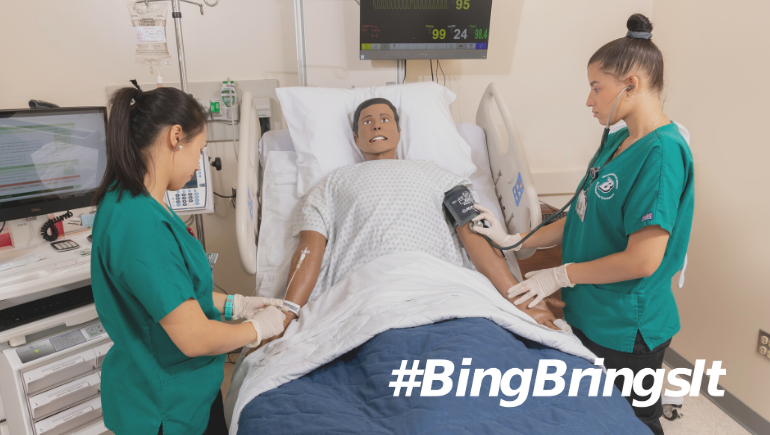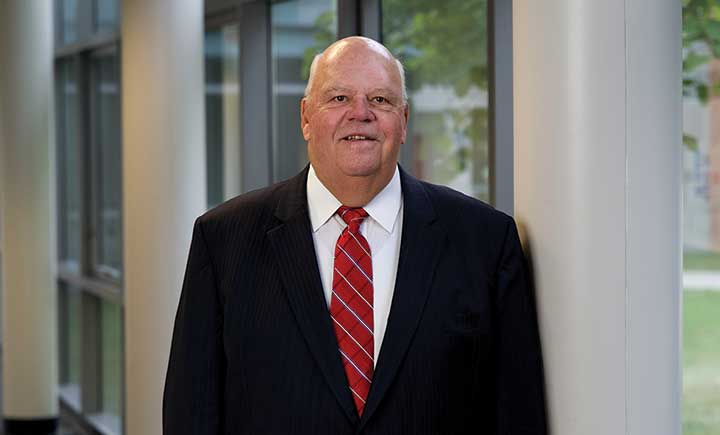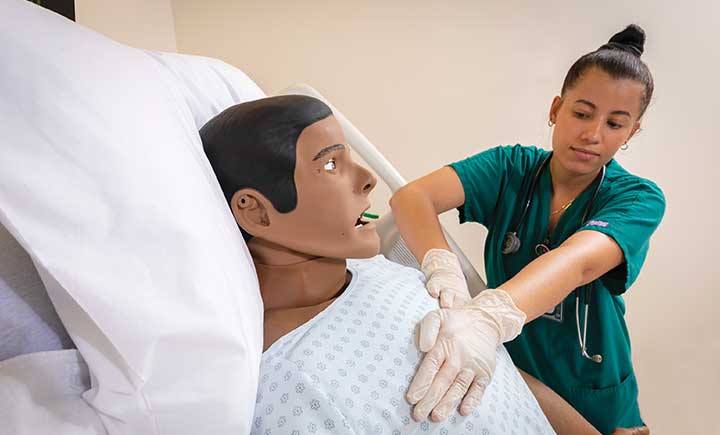Decker Foundation grant supports equipment upgrade, new simulation center at Decker College

Simulation is deeply rooted in Binghamton’s history and culture, as are carousels and spiedies. Edwin A. Link’s flight simulator and the resulting tech-industry boom helped put Binghamton on the map. And in the coming years, a different form of simulation will help Binghamton cement its reputation as a place where premier healthcare professionals are developed.
As Decker College of Nursing and Health Sciences prepares to move to 48 Corliss Ave. in Johnson City, in 2020, it looks forward to a 15,000-square-foot Innovative Simulation and Practice Center (ISPC) full of new, ultramodern patient simulators. A grant from the Dr. G. Clifford and Florence B. Decker Foundation provided funding for the purchase of infant and adult simulation manikins as well as other high-performance equipment for the ISPC, which is accredited by the Society for Simulation in Healthcare in the area of teaching/education.
“We’re fortunate to have the healthcare that we have in this community, and part of that is because of what’s happening in Decker College,” says Gerald Putman ’76, MBA ’84, executive director of the Decker Foundation. “It’s a natural fit with us as a foundation because we’re always interested in the marriage of healthcare and education.”
“This grant from the Decker Foundation will help assure that Decker College continues to be at the forefront of nursing education for years to come,” says Binghamton University President Harvey Stenger. “The Decker Foundation has been a great partner with Binghamton University for many years, and I’m pleased that this relationship continues to move in exciting new directions. This grant will have an impact not only here in the community, but also wherever our students follow their careers.”
In high-tech environments where advances in hardware and software occur rapidly, continuous improvement is necessary to ensure the student experience closely matches that of working with an actual patient. The result is little to no learning curve in a healthcare setting, where seconds count.
“Thanks to the Decker Foundation grant, we are current with all our equipment,” says Patti Reuther ’96, MS ’08, ISPC director.
“We’re educating graduate and undergraduate students with high-tech, high-fidelity manikins and this will prepare them for more complex care situations,” says Mario Ortiz, dean of Decker College. “We’ll be able to assess their skills before they proceed to clinicals where they work with real patients.”
The regional simulation center at Decker’s new home in Johnson City will fill a void in upstate New York and put the region on more even footing with other parts of the country where such facilities are already present.
“We have one of the best teams in the business,” Putman says. “The [Decker] team is recognized nationally. We have the structure to make this work. I don’t see it as a ‘build it and they will come’; rather it’s ‘build it because they are here, and we can make it better.’ I like to think of Binghamton as the cradle of simulation. It only makes sense for Binghamton to have a top-notch simulation center.”
“While our focus is on training nurses, we’d like to support the training of various healthcare professionals,” Reuther says. “Our next step is to conduct a needs analysis in the community. We want to know what equipment they need and what simulation training we can support.”
Reuther says the simulation center could also offer training courses such as CPR to students, healthcare professionals and community members.
Decker students and local healthcare professionals will also be able to increase their cultural competency by using the new manikins that represent people of diverse backgrounds. In the past, the simulated patients all had a Caucasian appearance.
“These manikins will increase the realism for students. In practice, they’re going to see a diverse population of people, so the equipment has to reflect what they’ll see out in the world,” says Patrick Leiby, director of technology and innovation for Decker College.



